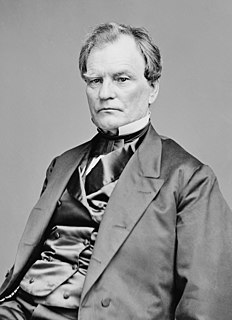A Quote by Hosea Ballou
Of all the ingenious mistakes into which erring man has fallen, perhaps none have been so pernicious in their consequences, or have brought so many evils into the world, as the popular opinion that the way of the transgressor is pleasant and easy.
Related Quotes
Conscience is a judge in every man's breast, which none can cheat or corrupt, and perhaps the only incorrupt thing about him; yet, inflexible and honest as this judge is (however polluted the bench on which he sits), no man can, in my opinion, enjoy any applause which is not there adjudged to be his due.
... when death has been brought upon a saint, we ought not to think that an evil has happened to him but a thing indifferent; which is an evil to a wicked man, while to the good it is rest and freedom from evils. 'For death is rest to a man whose way is hidden' (Job 3:23 LXX). And so a good man does not suffer any loss from it.
Kind-hearted people might of course think there was some ingenious way to disarm or defeat an enemy without too much bloodshed, and might imagine this is the true goal of the art of war. Pleasant as it sounds; it is a fallacy that must be exposed: War is such a dangerous business that the mistakes which come from kindness are the very worst.
There is not such a mighty difference as some men imagine between the poor and the rich; in pomp, show, and opinion, there is a great deal, but little as to the pleasures and satisfactions of life. They enjoy the same earth and air and heavens; hunger and thirst make the poor man's meat and drink as pleasant and relishing as all the varieties which cover the rich man's table; and the labor of a poor man is more healthful, and many times more pleasant, too, than the ease and softness of the rich.
The urge to distribute wealth equally, and still more the belief that it can be brought about by political action, is the most dangerous of all popular emotions. It is the legitimation of envy, of all the deadly sins the one which a stable society based on consensus should fear the most. The monster state is a source of many evils; but it is, above all, an engine of envy.
Every man is of importance to himself, and, therefore, in his own opinion, to others; and, supposing the world already acquainted with his pleasures and his pains, is perhaps the first to publish injuries or misfortunes which had never been known unless related by himself, and at which those that hear them will only laugh, for no man sympathises with the sorrows of vanity.
It is not always easy to diagnose. The simplest form of stupidity - the mumbling, nose-picking, stolid incomprehension - can be detected by anyone. But the stupidity which disguises itself as thought, and which talks so glibly and eloquently, indeed never stops talking, in every walk of life is not so easy to identify, because it marches under a formidable name, which few dare attack. It is called Popular Opinion.





































